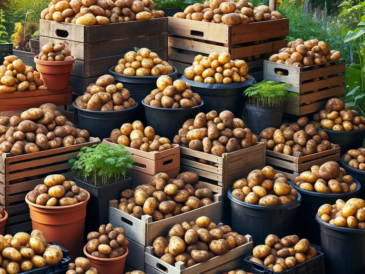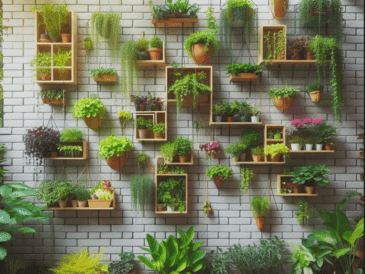Gardening is a rewarding and fulfilling hobby that allows you to connect with nature, cultivate beautiful landscapes, and enjoy the fruits of your labor. However, achieving gardening success requires knowledge, patience, and dedication. Whether you’re a novice gardener or seasoned green thumb, incorporating expert tips and techniques into your gardening practices can help you grow a bountiful and thriving garden. Here are some secrets of successful gardeners to help you cultivate lush, vibrant gardens:
- Know Your Soil: Understanding your soil composition is essential for successful gardening. Test your soil’s pH levels and nutrient content to determine its fertility and acidity levels. Amend soil as needed with organic matter, compost, and soil conditioners to improve its structure, drainage, and nutrient-holding capacity. Different plants have different soil preferences, so tailor your soil amendments accordingly to provide optimal growing conditions for your garden.
- Choose the Right Plants: Selecting the right plants for your garden is crucial for success. Consider factors such as climate, sunlight exposure, soil type, and water requirements when choosing plants for your landscape. Opt for native and well-adapted plant species that thrive in your region’s growing conditions and are resistant to pests and diseases. Research plant varieties that are suitable for your garden’s microclimate and can provide year-round interest and beauty.
- Plan Your Garden Layout: Proper garden planning and layout are key to maximizing space, sunlight, and airflow while minimizing competition between plants. Design your garden beds with adequate spacing between plants to allow for proper growth and airflow. Consider factors such as plant height, spread, and growth habits when arranging plants in your garden to ensure they have room to flourish without overcrowding. Use companion planting techniques to maximize biodiversity and natural pest control in your garden.
- Provide Adequate Watering: Watering is essential for plant growth and vitality, but it’s important to water wisely to avoid overwatering or underwatering. Water plants deeply and infrequently to encourage deep root growth and drought tolerance. Water early in the morning to reduce evaporation and minimize fungal diseases. Use drip irrigation, soaker hoses, or watering cans to deliver water directly to the base of plants and minimize water waste. Mulch garden beds with organic mulches like straw, wood chips, or shredded leaves to retain moisture, suppress weeds, and regulate soil temperature.
- Practice Proper Plant Care: Regular maintenance and care are essential for keeping your garden healthy and productive. Monitor plants regularly for signs of pests, diseases, and nutrient deficiencies, and take appropriate action to address any issues promptly. Prune plants as needed to promote airflow, remove dead or diseased foliage, and shape growth. Deadhead flowers to encourage continuous blooming and remove spent blooms to redirect energy to new growth. Fertilize plants with organic fertilizers or compost tea to provide essential nutrients for healthy growth and flowering.
- Encourage Pollinators and Beneficial Insects: Pollinators such as bees, butterflies, and hummingbirds play a crucial role in plant reproduction and fruit production. Create habitat and food sources for pollinators by planting a diverse range of flowering plants, including native species, in your garden. Avoid using chemical pesticides and herbicides that can harm beneficial insects and disrupt the natural ecosystem. Provide nesting sites such as bee hotels, butterfly houses, and brush piles to attract and support pollinators and beneficial insects.
- Protect Your Garden from Pests and Diseases: Preventing and managing pests and diseases is essential for maintaining a healthy garden. Practice good garden hygiene by removing weeds, debris, and diseased plants to reduce pest and disease pressure. Use physical barriers such as row covers, netting, and plant collars to protect plants from pests and wildlife. Monitor plants regularly for signs of pest infestations or disease outbreaks and take prompt action to address them using organic pest control methods such as handpicking, insecticidal soaps, neem oil, or beneficial insects.
- Harvest and Preserve Your Garden Bounty: Enjoy the fruits of your labor by harvesting fresh produce and flowers from your garden regularly. Harvest fruits and vegetables at their peak ripeness for the best flavor and nutritional value. Preserve excess harvest through canning, freezing, drying, or fermenting to enjoy garden-fresh produce year-round. Share your garden bounty with friends, family, and neighbors to spread joy and appreciation for homegrown goodness.
By incorporating these expert tips and techniques into your gardening practices, you can cultivate a bountiful and thriving garden that brings beauty, joy, and abundance to your outdoor space. Whether you’re growing vegetables, flowers, herbs, or ornamental plants, the secrets of successful gardeners can help you achieve gardening success and create a haven of natural beauty and vitality in your own backyard.



